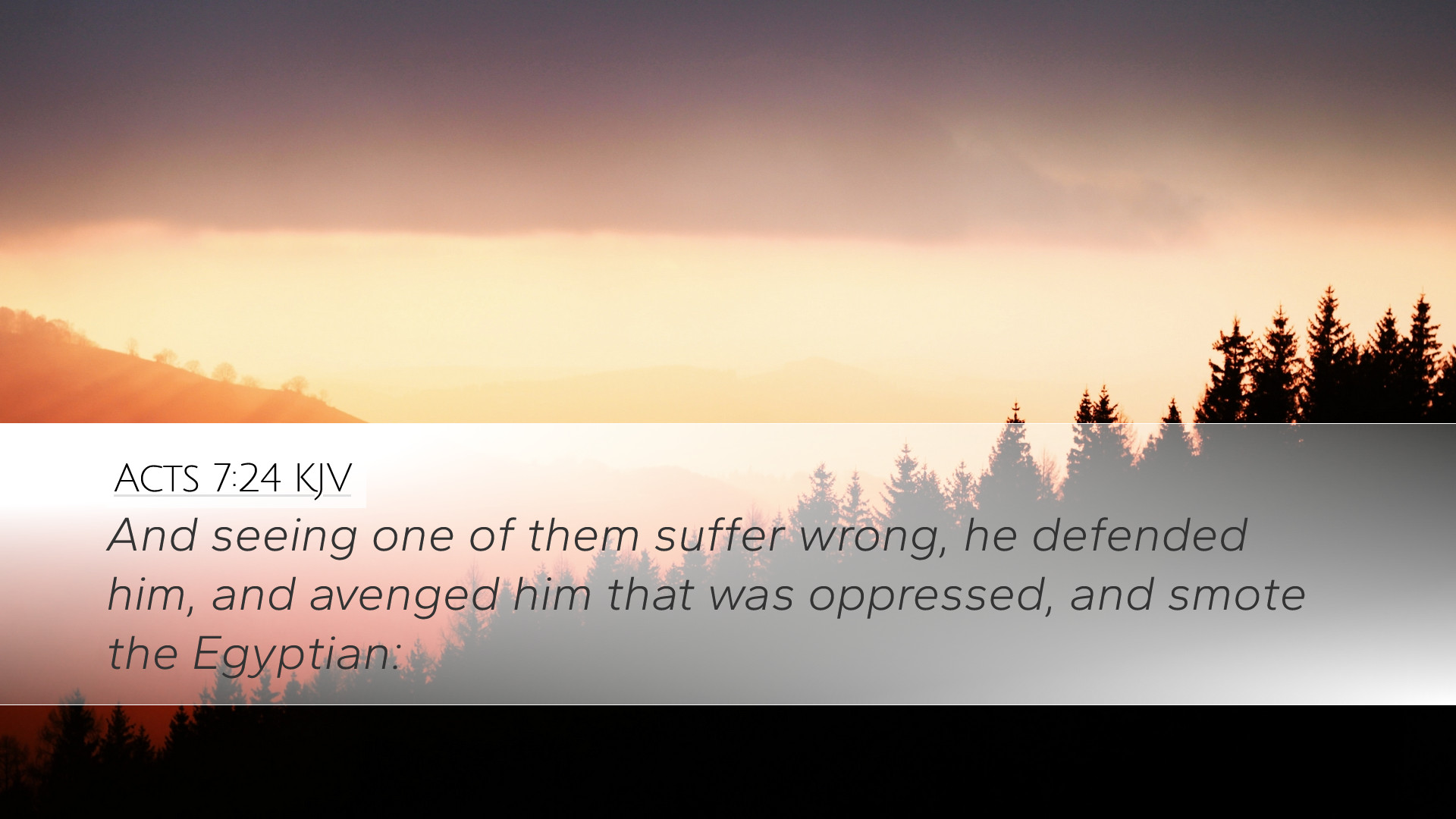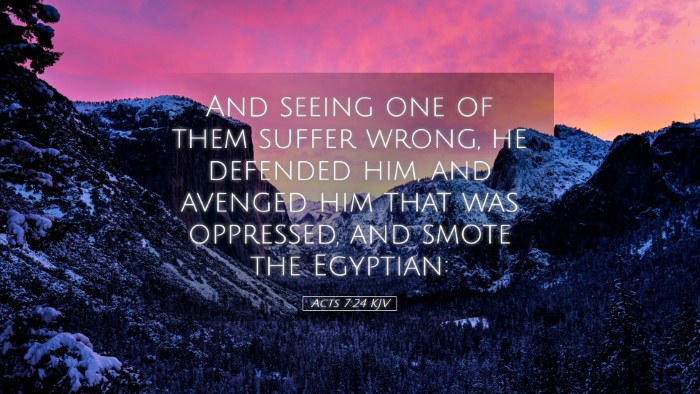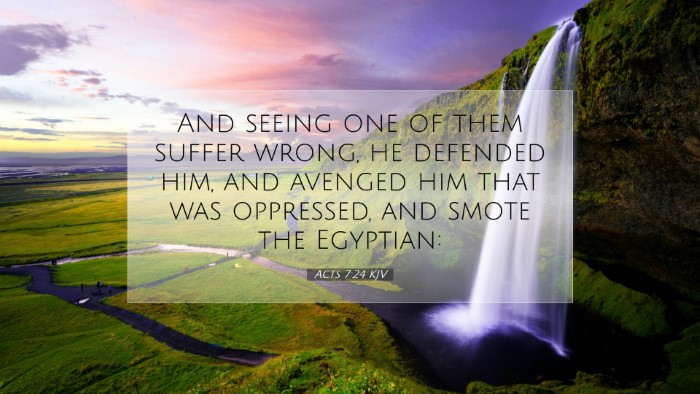Commentary on Acts 7:24
Acts 7:24 states: "And seeing one of them suffer wrong, he defended him, and avenged him that was oppressed, and smote the Egyptian." This verse encapsulates a pivotal moment in the life of Moses and provides insight into themes of justice, advocacy, and the early workings of God's plan for His people.
Overview of the Context
In this passage, Stephen recounts Moses’ early life, emphasizing how God prepared Moses for his future role as the deliverer of Israel. The events of this verse occur during a time of great oppression for the Israelites in Egypt. Commentators agree that this moment highlights Moses' innate leadership qualities and foreshadows his future role as a liberator.
Insights from Matthew Henry
Matthew Henry emphasizes the motivational force behind Moses’ actions. He notes that Moses' act of defending the oppressed is indicative of his heart for justice. Even before his official calling, Moses exhibits the characteristics of a defender of the oppressed:
- Compassion: Henry argues that Moses' compassion for his fellow Israelites reveals an important aspect of leadership—an empathetic heart that aligns with God's purposes.
- Courage: The boldness of Moses in striking the Egyptian illustrates the risks a leader must be willing to take in defense of justice.
- Divine Providence: Henry reflects on how this act was part of God’s providential guidance, illustrating that God equips leaders even before their formal calling.
Insights from Albert Barnes
Albert Barnes provides a detailed exegesis of the motivations behind Moses’ actions. He highlights the following points:
- Moses' Identification with His People: Barnes notes that Moses saw himself not as an Egyptian but as one of the Hebrew people. His act of defense indicates his internalized identity with the suffering of his brethren.
- The Act of Violence: Barnes discusses the implications of Moses’ violent act, suggesting that while it was an act of courage, it was also a demonstration of a flawed understanding of God's deliverance.
- Consequences: Barnes warns that Moses' rashness in dealing with the Egyptian would lead to significant consequences, propelling Moses into a period of exile, which ultimately served God's greater plan.
Insights from Adam Clarke
Adam Clarke offers a theological reflection on the act of Moses in terms of spiritual warfare and the deliverance of God’s people:
- Symbolic Representation: Clarke sees the Egyptian as a symbol of oppression and sin, while Moses represents the believer who stands against evil in defense of righteousness.
- God’s Preparation: He emphasizes that God often prepares His chosen individuals through such trials, indicating that Moses’ actions, while needing correction, were part of his spiritual growth towards his appointed task.
- Understanding Authority: Clarke warns of the dangers of taking authority into one’s own hands, suggesting Moses acted from a misinterpretation of God's will at that moment.
Theological Implications
The actions of Moses raise important theological questions that resonate with leaders and scholars today:
- The Nature of Leadership: Moses exhibits an early sense of responsibility and leadership. This suggests that effective leaders possess a deep-seated conviction of justice and a willingness to act on behalf of others.
- Moral Complexity: The moral ambiguity of Moses’ actions invites reflection on the complexities of human ethics in a fallen world. The means through which we seek justice must be examined in light of God's character and purposes.
- God’s Sovereignty: The narrative indicates God’s sovereignty over human actions, as He uses even flawed decisions to fulfill His divine plan for deliverance.
Application for Today’s Believers
The lessons drawn from Acts 7:24 remain pertinent for contemporary believers:
- Advocacy Against Oppression: Followers of Christ are called to stand against injustice and advocate for the oppressed, mirroring Moses’ initial action.
- Discernment in Action: Believers must seek discernment in their actions, desiring to align their motivations with God’s will rather than acting impulsively or out of anger.
- Understanding God’s Preparation: Just as God prepared Moses, He is preparing believers for roles in His redemptive work today, necessitating a heart sensitive to His calling.
Conclusion
Acts 7:24 serves as a profound reminder of the depths of God's involvement in human history and His preparation of leaders for His purpose. As we learn from Moses’ experiences, may we pursue justice, act with intentionality under God’s guidance, and recognize our roles in the unfolding story of His kingdom.


